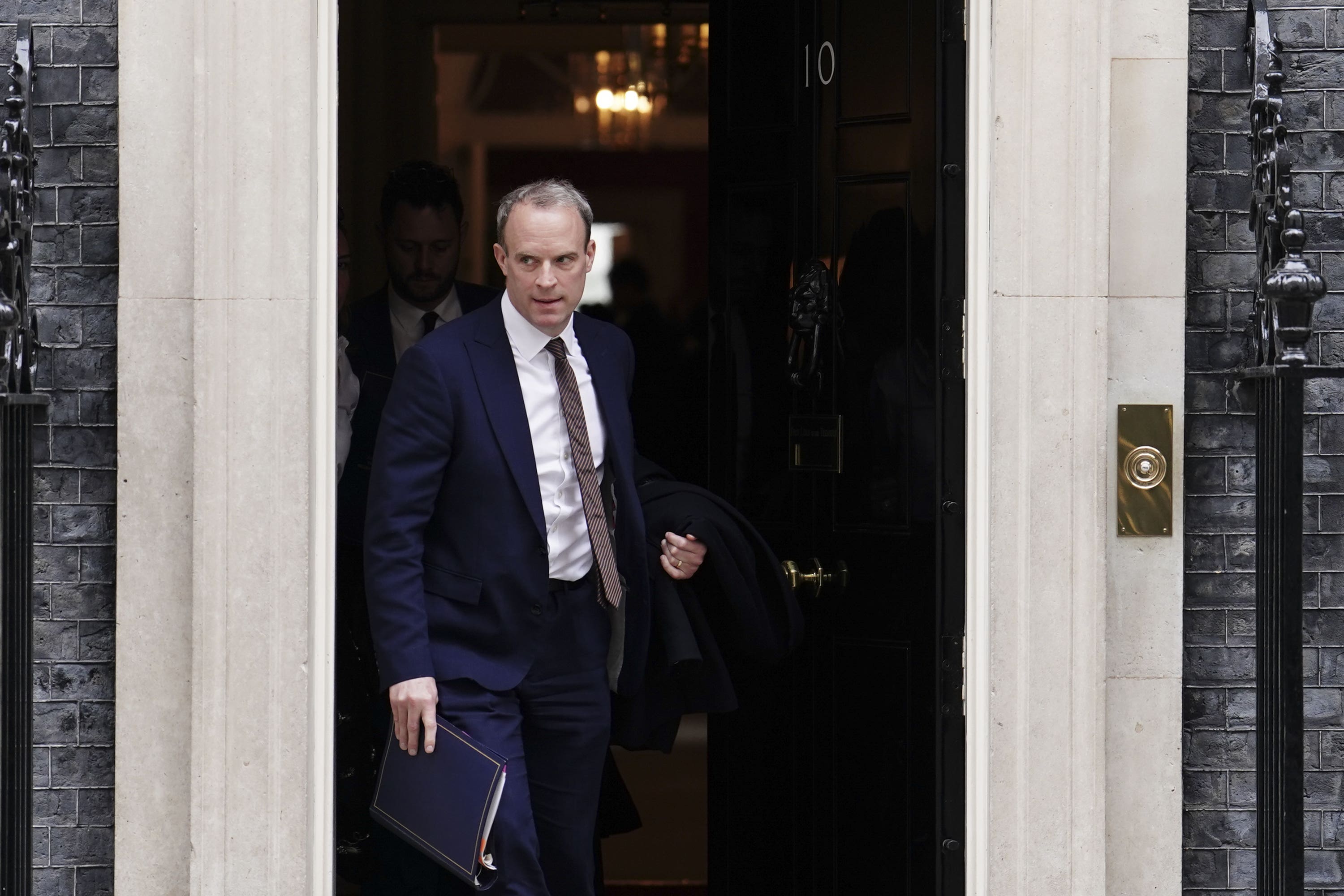Allegations against Dominic Raab that sent him to backbenches
Here PA takes a look at the key allegations – and details which ones were upheld.

Your support helps us to tell the story
From reproductive rights to climate change to Big Tech, The Independent is on the ground when the story is developing. Whether it's investigating the financials of Elon Musk's pro-Trump PAC or producing our latest documentary, 'The A Word', which shines a light on the American women fighting for reproductive rights, we know how important it is to parse out the facts from the messaging.
At such a critical moment in US history, we need reporters on the ground. Your donation allows us to keep sending journalists to speak to both sides of the story.
The Independent is trusted by Americans across the entire political spectrum. And unlike many other quality news outlets, we choose not to lock Americans out of our reporting and analysis with paywalls. We believe quality journalism should be available to everyone, paid for by those who can afford it.
Your support makes all the difference.Former deputy prime minister Dominic Raab has resigned after an inquiry found he had acted in an “intimidating” and “aggressive” way with officials.
The 47-page report by Adam Tolley KC examines a number of incidents spanning the former minister’s tenure as foreign secretary, justice secretary and Brexit secretary.
Here PA takes a look at the key allegations – and which ones were upheld.
– ‘Disciplinary threat’
Mr Raab was accused of conveying a threat which had a “significant adverse effect” on a member of staff while working at the foreign office. He was said to have suggested those involved on a project had breached the Civil Service Code.
Senior diplomat Sir Philip Barton gave evidence that he later had a “private meeting” with Mr Raab to warn him not to threaten staff with the code. Mr Raab disputed that the meeting had taken place.
Finding: Mr Tolley found Mr Raab had conveyed a threat and should have known his reference to the code would be perceived as such. He did not intend to threaten anyone with disciplinary action, but should have known how his comments would be interpreted.
He also found that, while Mr Raab was foreign secretary, his conduct on one occasion amounted to “an abuse or misuse of power in a way that undermines or humiliates”.
– ‘Banging tables and hand-waving’
Colleagues complained that Mr Raab’s “physical gestures” were used in a threatening way. Loud banging on tables and finger-pointing were among the allegations. In one extreme case, he was said to have extended his hand towards someone’s face to stop them talking.
Finding: Mr Tolley found there was “scope for misunderstanding” and that the then-minister had not intended to be threatening.
– ‘Intimidating meetings’
While at the Ministry of Justice (MoJ), Dominic Raab was said to have complained about a lack of “the basics” or “basic information” provided by staff. He was said to have been “intimidating” and “insulting” on a number of occasions in meetings.
Finding: Mr Tolley found in the complainant’s favour. He made comments which were likely to “be interpreted as “unfairly personal criticism”, the report said. In relation to a separate complaint about an incident at a work meeting while foreign secretary, Mr Raab displayed “unreasonably and persistently aggressive” conduct.
– ‘Perverse culture of fear’
A second group complaint at the MoJ described a “perverse culture of fear” and unreasonable work deadlines.
Finding: Mr Tolley said the staff had “no ulterior agenda” but the nature of the evidence made it “unsuitable” grounds for a finding of fact.
– ‘Shouting and swearing’
Mr Raab was not found to have shouted or sworn at colleagues on any occasion.
Mr Tolley said there was no “persuasive evidence” that he had shouted, and concluded he had not sworn either at individuals or “more generally”.
– ‘Woeful’ and ‘useless’ insults
Mr Raab claimed there was “cultural resistance” to his flagship Bill of Rights and policies on parole reform in the Ministry of Justice.
When frustrated that one of his “steers” about a proposed reform was not implemented, he was said to have described the work of staff involved as “utterly useless” and “woeful”.
Finding: Mr Tolley found in the favour of the complaint. “On balance, I think that these were the words used; they comprised criticism that was not in the nature of constructive feedback. They were reasonablyunderstood as insulting personal criticism,” he said.


